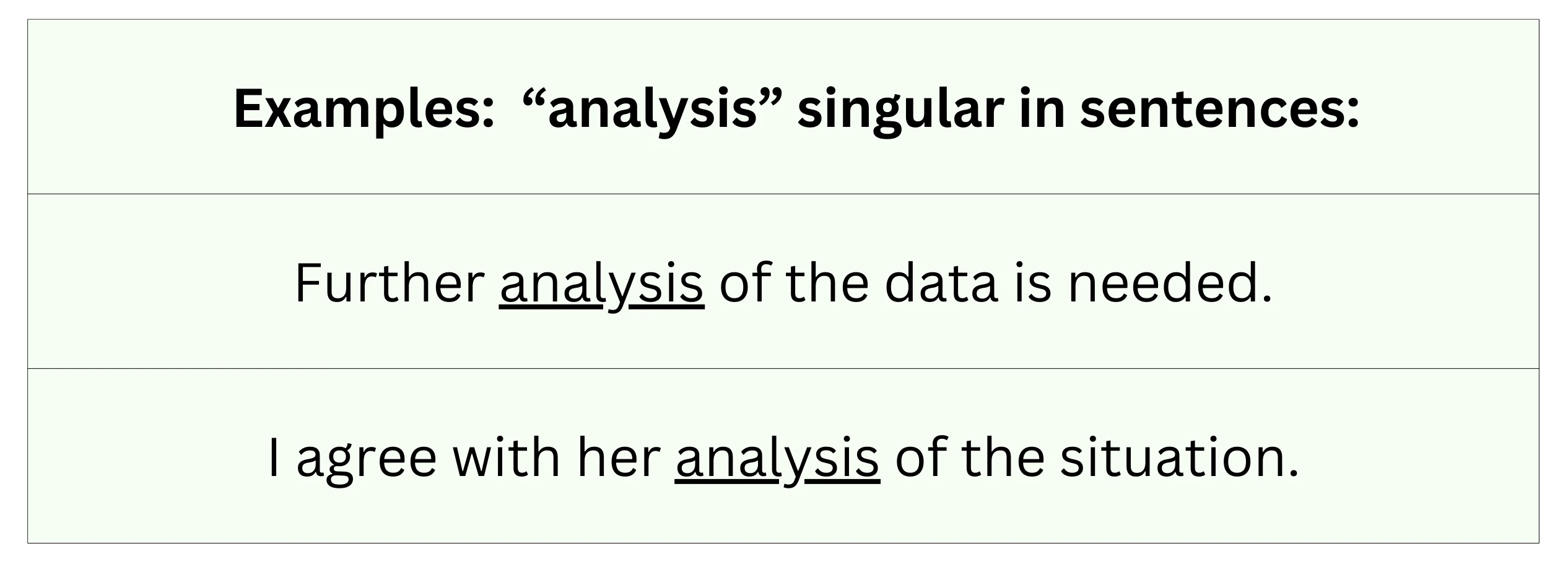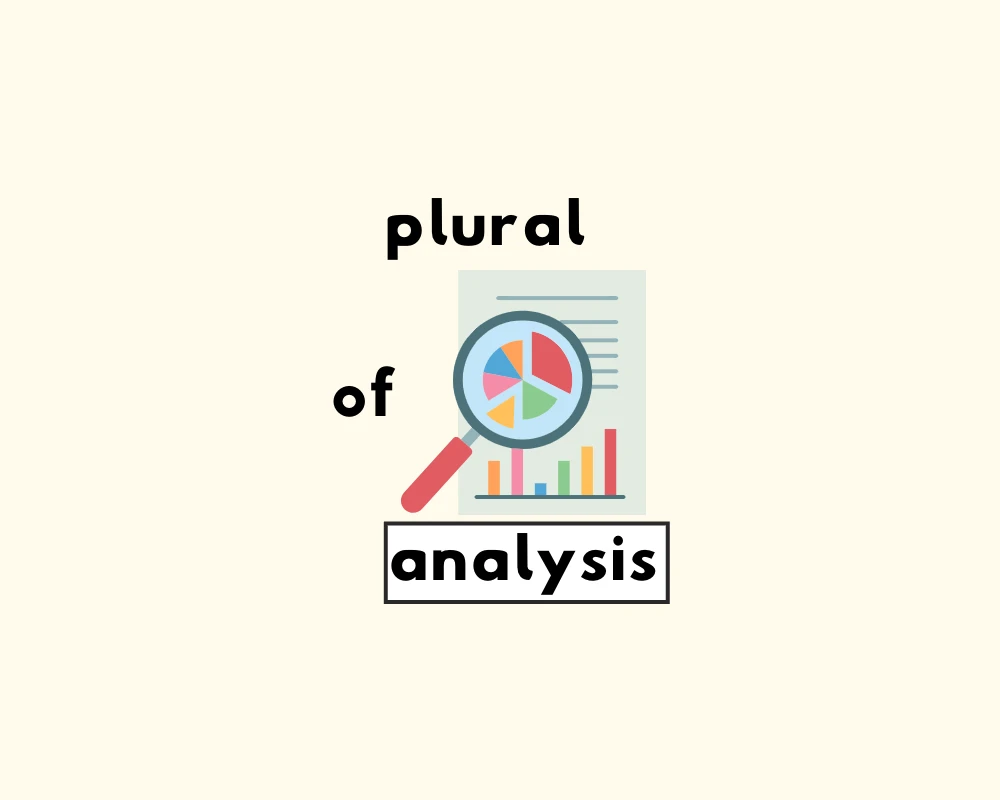What’s the plural of “analysis”?
An analysis is a “detailed study or examination of something in order to understand more about it; the result of the study.” Its meaning is similar to assess or evaluate.
- Analysis is singular.
- Analyses (uh-nal-uh-seeze) is plural.
Forms of analysis
- To analyze (or analyse in UK English) is the verb form of analysis.
- Analytic and analytical are adjective forms.

Most plural nouns in English end in ‘-s’ or ‘-es’. Nouns that end in s/es are regular and simple to form: all you have to do is add ‘s’ or ‘es’! We see this with most nouns: ‘dog’ plural is ‘dogs’, cat turns to cats, book is books, ‘table’/ ‘tables’, and so forth. Plural nouns ending in anything other than ‘s’ or ‘es’ are irregular. To learn more about irregular plurals, check our deep dive here.
Greek pluralization rules
Despite Greek nouns ending with ‘-es’ as plurals, they are still irregular, since, instead of adding ‘-es’ to the word’s ending, the ‘-es’ is swapped with ‘-is’ from its singular case. Because ‘-es’ replaces the suffix of its singular noun form (the -is), this changes how we spell and pronounce ‘analyses’ as a plural and other Greek words.
Analysis/analyses share singular/plural noun patterns with many Greek words: diagnosis, crisis, synopsis, oasis, synthesis, thesis, and nemesis all end in -sis as singular nouns. Each similarly mimics the same plural form; i.e., substitutes the -sis with -ses: diagnoses, crises, oases, syntheses, the Greek nouns list goes on).
Apart from being irregular plural nouns, these words have another thing in common: they’re all Greek. Greek occupies roughly 5% of the English language. Most English words come from the Germanic languages, which include Dutch, German, Old Norse, Old Frisian, and a few others.
Example sentences: analysis/analyses
| Noun: analysis | Example sentences |
|---|---|
| analysis (singular) |
I agree with her analysis of the situation. They collect blood samples for analysis at the laboratory. They ran an analysis of the area's drinking water to test for any bacteria. |
| analyses (plural) |
During analyses of future weather patterns, a meteorological team has detected climate changes that may produce a category five hurricane. The factory owner made several budget analyses to decide which departments could be reduced in size. Analyses are sent to the labs for testing. |
Quotes with analysis in the media & literature
This is an exhaustive technical analysis of the causes sticks the New York money market, accompanied by numerous statistical tables.
Today, even a minute trace of DNA is enough for analysis.
Analysis and synthesis are expected to occur within the expanded talk as well as the abbreviated talk.
Aristotle's sociology of Greek politics comes very near to a Marxist analysis.
Synonyms & nearby words
Synonyms for analysis
Practice: Analysis plural (word forms)
The team conducted several ______ to understand the market trends.
We need to carefully ______ the results of the experiment.
Her detailed ______ of the data revealed a critical error.
He is currently ______ the financial reports for the last quarter.
All of the scientific ______ pointed to the same conclusion.
FAQs
Q: What is the plural of “analysis”?
Q: How do you spell the plural form?
Q: How is the plural form pronounced?
Q: Why is the plural form irregular?
Q: When should I use “analysis” vs “analyses”?
Sources
- “Inquiry | Enquiry, N.” Oxford English Dictionary, Oxford UP, June 2025, https://doi.org/10.1093/OED/2955210899.
- Herbert Marshall McLuhan, Letters of Marshall McLuhan, (ed. Matie Molinaro). 1st edition, 1987 (1 vol.).
Yash, D. "How to Use Analysis Plural (*Analysises, Analysis?)." Grammarflex, Sep 21, 2025, https://grammarflex.com/analysis-plural/.








